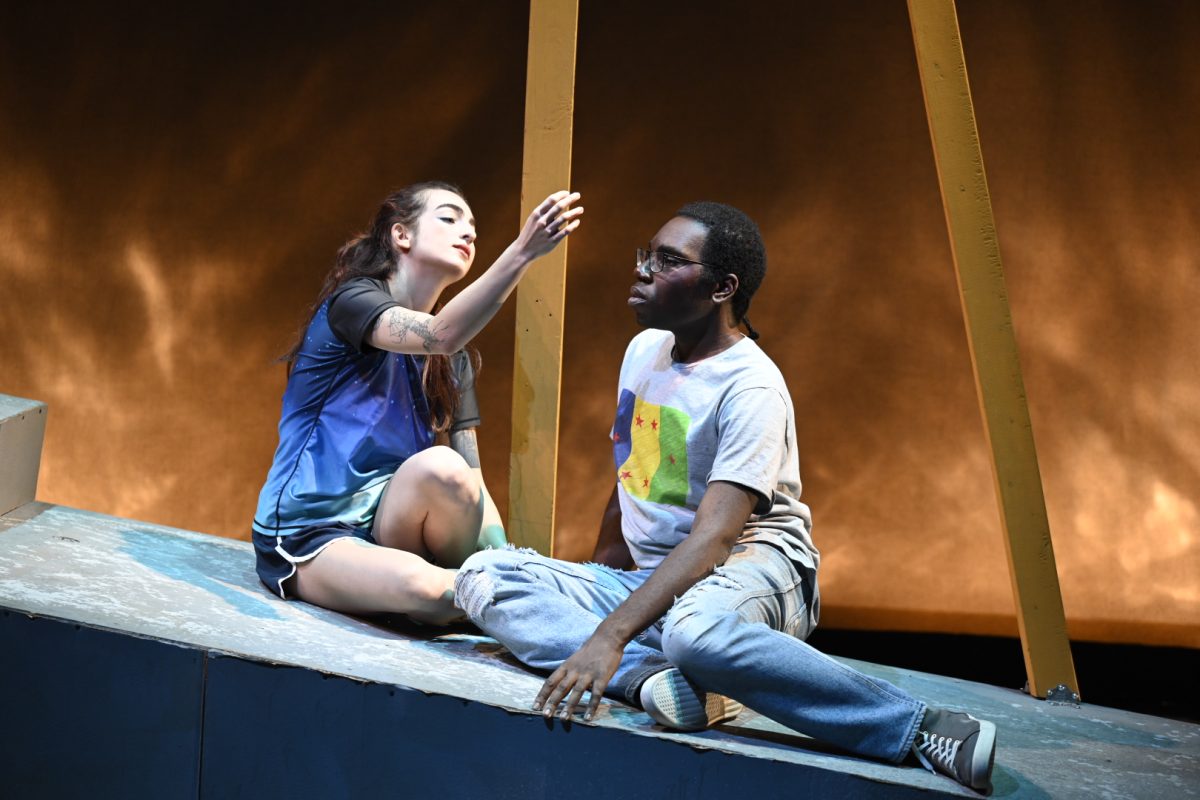Bull, directed by Trey Alberg ’20 and Will Josowitz ’21, is staged upon a boxing ring where three businessmen battle for their economic existence. Fists are replaced by words, no less injurious. Relentless, bruising, cutting, words are wielded with Hobbesian brutality as instruments with which to cast the weak into a welter of blood, tears, and chaos. This play displays in unsparing fashion the depths of human sadism, the dark frontiers of brutality, where destruction is pursued for its own sake. With a clarifying force attributable to Alberg’s and Josowitz’s sagacity as directors, the play soberly reminds us of how, in an unjust world, the brute forces of human nature are frequently rewarded by praise and prosperity.
Written by Mike Barlett, Bull premiered in 2013 at the Crucible Studio Theater in the English city of Sheffield. For this initial run, the play was awarded the UK Theatre Award for 2013. Afterwards, the play opened under the direction of Clare Lizzimore, at the Young Vic Theatre in London. That production procured a 2015 Olivier Award for Outstanding Achievement in an Affiliate Theatre.
In the midst of an economic recession, three office workers are struggling to keep their jobs in a hard-nosed, belt-tightening environment. These workers exist in a culture in which Social Darwinism rules all, with humanity viewed as a liability. Power is the central currency. Humiliation is a way of life. Two of the three workers, Isobel (played by Emma Buechner ’18) and Tony (played by Bryce Bern ’20) seem entirely comfortable with this mentality of survival-at-any-price. But Thomas (played by Alberg) cannot adjust, for he maintains his humanity despite being surrounded by this pack of carnivores. From a certain perspective, Thomas seems pathetic. He is short, flabby, stupid, insecure, pitiful in the worst way. An object of universal contempt, he is like a drowning man who has resigned himself to the deep. However, the audience identifies with Thomas because he is our representative, a ray of light in a world of darkness, a voice of idealism futilely attempting to stop everyone from eating everyone else. His degeneration is our tragedy, for he embodies the vulnerability of the idealist in a world of uncompromising realism.
Alberg’s and Josowitz’ production succeeds largely due to the economical style of the directing and the acting. Avoiding the pitfalls of directorial ostentation, the directors make subtle blocking choices which do not distract from the flair, liveliness, and wit of the writing. Moments of active, supercharged stillness and silence exhibit this skill of directorial economy. Similarly, all three actors are in command of their characters, preferring subtlety to heavy-handedness, integrity to bombast. Rather than screaming at each other, the actors speak in rather subdued tones, allowing the force of the insults to proceed from the words rather than decibel levels. Buechner’s Isobel particularly shines in this regard. Despite a sweet, unassuming voice, her eyes emanate fierceness as she stares Thomas down, analyzing every motion, every twitch, every flutter, searching for a weakness, a vulnerability to grab onto, a novel way to gnaw his soul and crush his being. She is a nihilist par excellence, an executioner who relishes the sight of blood. This theatrical production possesses the depth of a sophisticated work of art and the vitality of great entertainment. In a brisk 55 minutes, the production speeds by. I advise the Carleton community to support the actors and crew by arriving for the performances this weekend in droves.














